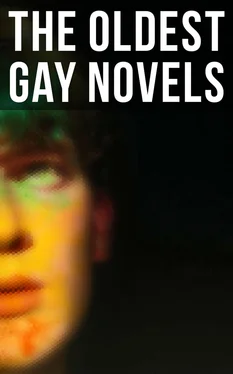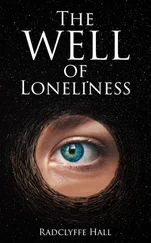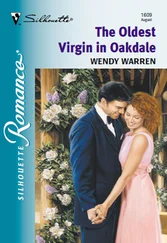The lips themselves were short and slightly drawn back over teeth of an exquisite and almond whiteness. Nothing disturbed the arrowy nose in its short, tense flight; the hair was dark, the ears small, and fitted closely to the head. But, alas, that these catalogues of youthful beauty cannot end without mentioning forehead and eyes. Alas, that people are seldom born devoid of all three; for directly we glance at Orlando standing by the window, we must admit that he had eyes like drenched violets, so large that the water seemed to have brimmed in them and widened them; and a brow like the swelling of a marble dome pressed between the two blank medallions which were his temples. Directly we glance at eyes and forehead, thus do we rhapsodize. Directly we glance at eyes and forehead, we have to admit a thousand disagreeables which it is the aim of every good biographer to ignore. Sights disturbed him, like that of his mother, a very beautiful lady in green walking out to feed the peacocks with Twitchett, her maid, behind her; sights exalted him — the birds and the trees; and made him in love with death — the evening sky, the homing rooks; and so, mounting up the spiral stairway into his brain — which was a roomy one — all these sights, and the garden sounds too, the hammer beating, the wood chopping, began that riot and confusion of the passions and emotions which every good biographer detests, But to continue — Orlando slowly drew in his head, sat down at the table, and, with the half-conscious air of one doing what they do every day of their lives at this hour, took out a writing book labelled ‘Aethelbert: A Tragedy in Five Acts,’ and dipped an old stained goose quill in the ink.
Soon he had covered ten pages and more with poetry. He was fluent, evidently, but he was abstract. Vice, Crime, Misery were the personages of his drama; there were Kings and Queens of impossible territories; horrid plots confounded them; noble sentiments suffused them; there was never a word said as he himself would have said it, but all was turned with a fluency and sweetness which, considering his age — he was not yet seventeen — and that the sixteenth century had still some years of its course to run, were remarkable enough. At last, however, he came to a halt. He was describing, as all young poets are for ever describing, nature, and in order to match the shade of green precisely he looked (and here he showed more audacity than most) at the thing itself, which happened to be a laurel bush growing beneath the window. After that, of course, he could write no more. Green in nature is one thing, green in literature another. Nature and letters seem to have a natural antipathy; bring them together and they tear each other to pieces. The shade of green Orlando now saw spoilt his rhyme and split his metre. Moreover, nature has tricks of her own. Once look out of a window at bees among flowers, at a yawning dog, at the sun setting, once think ‘how many more suns shall I see set’, etc. etc. (the thought is too well known to be worth writing out) and one drops the pen, takes one’s cloak, strides out of the room, and catches one’s foot on a painted chest as one does so. For Orlando was a trifle clumsy.
He was careful to avoid meeting anyone. There was Stubbs, the gardener, coming along the path. He hid behind a tree till he had passed. He let himself out at a little gate in the garden wall. He skirted all stables, kennels, breweries, carpenters’ shops, washhouses, places where they make tallow candles, kill oxen, forge horse-shoes, stitch jerkins — for the house was a town ringing with men at work at their various crafts — and gained the ferny path leading uphill through the park unseen. There is perhaps a kinship among qualities; one draws another along with it; and the biographer should here call attention to the fact that this clumsiness is often mated with a love of solitude. Having stumbled over a chest, Orlando naturally loved solitary places, vast views, and to feel himself for ever and ever and ever alone.
So, after a long silence, ‘I am alone’, he breathed at last, opening his lips for the first time in this record. He had walked very quickly uphill through ferns and hawthorn bushes, startling deer and wild birds, to a place crowned by a single oak tree. It was very high, so high indeed that nineteen English counties could be seen beneath; and on clear days thirty or perhaps forty, if the weather was very fine. Sometimes one could see the English Channel, wave reiterating upon wave. Rivers could be seen and pleasure boats gliding on them; and galleons setting out to sea; and armadas with puffs of smoke from which came the dull thud of cannon firing; and forts on the coast; and castles among the meadows; and here a watch tower; and there a fortress; and again some vast mansion like that of Orlando’s father, massed like a town in the valley circled by walls. To the east there were the spires of London and the smoke of the city; and perhaps on the very sky line, when the wind was in the right quarter, the craggy top and serrated edges of Snowdon herself showed mountainous among the clouds. For a moment Orlando stood counting, gazing, recognizing. That was his father’s house; that his uncle’s. His aunt owned those three great turrets among the trees there. The heath was theirs and the forest; the pheasant and the deer, the fox, the badger, and the butterfly.
He sighed profoundly, and flung himself — there was a passion in his movements which deserves the word — on the earth at the foot of the oak tree. He loved, beneath all this summer transiency, to feel the earth’s spine beneath him; for such he took the hard root of the oak tree to be; or, for image followed image, it was the back of a great horse that he was riding, or the deck of a tumbling ship — it was anything indeed, so long as it was hard, for he felt the need of something which he could attach his floating heart to; the heart that tugged at his side; the heart that seemed filled with spiced and amorous gales every evening about this time when he walked out. To the oak tree he tied it and as he lay there, gradually the flutter in and about him stilled itself; the little leaves hung, the deer stopped; the pale summer clouds stayed; his limbs grew heavy on the ground; and he lay so still that by degrees the deer stepped nearer and the rooks wheeled round him and the swallows dipped and circled and the dragonflies shot past, as if all the fertility and amorous activity of a summer’s evening were woven web-like about his body.
After an hour or so — the sun was rapidly sinking, the white clouds had turned red, the hills were violet, the woods purple, the valleys black — a trumpet sounded. Orlando leapt to his feet. The shrill sound came from the valley. It came from a dark spot down there; a spot compact and mapped out; a maze; a town, yet girt about with walls; it came from the heart of his own great house in the valley, which, dark before, even as he looked and the single trumpet duplicated and reduplicated itself with other shriller sounds, lost its darkness and became pierced with lights. Some were small hurrying lights, as if servants dashed along corridors to answer summonses; others were high and lustrous lights, as if they burnt in empty banqueting-halls made ready to receive guests who had not come; and others dipped and waved and sank and rose, as if held in the hands of troops of serving men, bending, kneeling, rising, receiving, guarding, and escorting with all dignity indoors a great Princess alighting from her chariot. Coaches turned and wheeled in the courtyard. Horses tossed their plumes. The Queen had come.
Orlando looked no more. He dashed downhill. He let himself in at a wicket gate. He tore up the winding staircase. He reached his room. He tossed his stockings to one side of the room, his jerkin to the other. He dipped his head. He scoured his hands. He pared his finger nails. With no more than six inches of looking-glass and a pair of old candles to help him, he had thrust on crimson breeches, lace collar, waistcoat of taffeta, and shoes with rosettes on them as big as double dahlias in less than ten minutes by the stable clock. He was ready. He was flushed. He was excited, But he was terribly late.
Читать дальше












